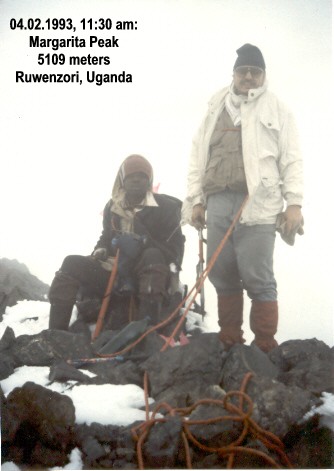Uganda: Rückkehr nach über 30 Jahren
Paul Theroux (Jg. 1941) ist ein amerikanischer Reiseschriftsteller und Autor, berühmt geworden durch sein Werk The Great Railway Bazaar (1975), eine literarische Verarbeitung seiner Tour von England, über West- nach Osteuropa, den Nahen Osten, durch Südasien, dann Südostasien, Ostasien, bis nach Japan, und wieder zurück durch Russland bis zum Ausgangspunkt England. (Mehr über Theroux bei Wikpedia. Auszug: As a traveler he is noted for his rich descriptions of people and places, laced with a heavy streak of irony often mistaken for misanthropy [Menschenhass].) Als junger Mann hat er von 1961 bis 1966 als Dozent an der Makerere Universität in Uganda unterrichtet und hatte dort u.a. den jungen Apolo Nsibambi als Kollegen. Nsibambi ist seit 1999 Premierminister unter Museveni in Uganda. Ich selbst kannte Nsibambi auch sehr gut, wir waren während meiner Zeit in Uganda (1987 – 1993) gemeinsam Rotarier des Rotarierclubs Kampala West. In 2001 hat Theroux noch einmal eine große Tour unternommen von Kairo bis Kapstadt, die er in dem Werk Dark Star Safari verarbeitet hat. Klar, dass ich mich dafür interessiert habe, enthält es doch auch Eindrücke über seine Rückkehr nach Uganda – nach über 30 Jahren. Und mit Apolo Nsibambi hatten wir ja auch einen gemeinsamen Bekannten.
(Hervorhebungen durch mich.)
"Inside the gates of
I asked John Ntambirweke [auch ein Dozenten-Kollege Theroux' von damals] about the recent election.
‘An election is not the only indicator of democracy,' he said, at the wheel of his car, negotiating the obstacles in this battered ivory tower. 'Democracy means much more - after all, the Romans had elections. Was
'They are free, aren't they? But they're hungry.'
'The people here need to be granted some political space,' he said. That seemed an appropriate term for Africans who were always lumped together.
'What I really object to is an intelligent man like Nsibambi, the prime minister, explaining in so many words that we require a one-party system. That we Africans are not clever enough or mature enough to think for ourselves. That we are somehow less than other people - inferior to people who have a real opposition.'
'There were several opposition parties fighting the election,' I said. 'They lost, right?'
'The election doesn't prove anything.'
'Some African countries don't even have them,' I said.
'We need them, but we need more than that,' he said. 'I am really disappointed with the level of political debate in this country.'
'Haven't people in
'It's worse now,' he said. 'We are treated as though we are unworthy, not capable of making choices and distinctions. It's insulting!'
'What do people in
'I do - all the time. I write them. I say them on the radio. I was saying them last Thursday on the radio just after the election. These days we are free to say anything.'
'That's better than being locked up, which was the traditional response here.'
'No one is going to lock me up for saying these things,' he said, but with an air of resignation at how ineffectual his opinions were.
‘
'That's fine,' I said, 'but if the chiefs and kings had that much power, then maybe that's a Ugandan problem - authority figures become very bossy.'
'Maybe. But it wasn't the case in
He laughed and said, 'Yes. When we're traveling in
I told him I was glad to hear him say that, because it was how I had felt about
Leaving Makerere later that day in a taxi, I asked the driver who he had voted for in the recent election. He laughed and said, 'These elections are held mainly to impress donor countries - to prove that we are doing the right thing. But it was a rigged election, and we voters are not impressed.'
(Seiten 215ff in der Pinguin-Ausgabe von 2002)


